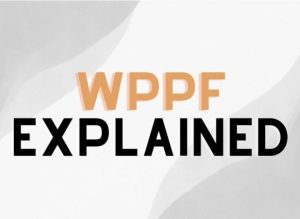Insights
Bancassurance in Bangladesh: Beginning of a New Era
4 minutes to read

Bancassurance simply refers to the idea where an insurance company utilizes a bank’s resources for selling its insurance products. Bancassurance combines two words; ‘bank and assurance’, whereby, assurance indicates the insurance companies. Bancassurance underpins the concept where the insurance companies, by way pf partnership with the banks, interact with the large customer base of banks directly or through bank employees and sell their product. This partnership can earn profit for both companies.
Bancassurance was introduced in France in the 80’s for fulfilling the demand of many economists who wanted to make banks more powerful. Such a deal gives insurance companies access to millions of potential customers right away and banks can generate millions of dollars as the additional fee from the insurance companies. It has become a massive industry where an estimate by Allied Market Research (AMR) shows that in 2021, The global bancassurance industry generated $901.5 billion in revenue in 2021 and is anticipated to rise at a compound annual growth rate (CAGR) of 7.4% from 2022 to 2031 to reach $1.8 trillion.
There are two types of bancassurance policy, namely, Life Insurance Products and Non-Life Insurance Products.
The concept of Bancassurance is comparatively delayed but latest in Bangladesh. As such in May 2022, Bangladesh Bank, sensing the necessity of insurance for the mass population and social protection, has finalized a guideline of the bancassurance policy for the local banks. It is now awaiting approval of the Ministry of Finance.
The proposed guidelines contain the following salient conditions:
- A bank will only be permitted to sign contracts with a maximum of three life insurance firms and three non-life insurance companies simultaneously.
- The establishment of a distinct, specialized department or wing by commercial banks is necessary in order to secure business through the model, in which bank customers will be the recipients of insurance products.
- A bank must provide an extract of the relevant board resolution along with the application for central bank approval.
- The Chief Bancassurance Officer (CBO) is required to hold a master’s degree or an equivalent degree from a Bangladeshi institution that has been approved by the country’s university grants commission, as well as from associated institutions abroad. Additionally, he must have at least 12 years of experience working for banks or insurance firms.
- The CBO’s official rank will be five grades below that of the bank’s CEO and/or Managing Director. He will furthermore require fulfilling certain requirements devised by the Insurance Development and Regulatory Authority’s (IDRA), such as certain trainings and/or certification.
- At the insurer’s request, the bank will offer all required support in gathering the paperwork and data needed to settle the claims.
- Under notification to the bank, the insurer must directly resolve the claim with the insured person or nominee(s), as appropriate.
- The commission on the insurance premium must be agreed upon by the bank and the insurer in accordance with their agreement and in accordance with the IDRA’s rules.
- The bank will assess if the insurance policy is suitable for the client.
Given that less than 1% of the world’s 168 million people are insured, there is a sizable untapped market. Banks have enough data on their clients to enable cross-selling and boost sales of the right kinds of insurance products. Convenience is one of bancassurance’s primary benefits in Bangladesh. Once introduced, customers can receive insurance services in the bank and hence are not required to go to the insurance company directly, saving precious time for the clients. Furthermore, since an insurance company can obtain fresh customers by using the bank’s resources, this additionally confirms the security and confidentiality of the clients.
The possibility for greater financial awareness is another benefit of bancassurance in Bangladesh. Banks can inform their consumers about insurance products and their advantages, so promoting greater public awareness and comprehension of insurance. Given the nation’s poor level of insurance literacy, this is especially crucial. However, being a new financial concept with which not only customers but also bankers and insurers may not be familiar, chances are higher that insurance products may be mis-sold to customers due to lack of knowledge from both ends. Furthermore, it is imperative that proper prudential regulations and accountability of selling such contemporary products are followed and maintained to avoid potential set-backs.
With proper strategy and knowledge of the product, bancassurance is anticipated to play a significant role in fostering the financial industry in Bangladesh and also educate the citizens about the importance of having an insurance as a financial protection. As such, owing to the benefits of amalgamation of both the financial markets that furthers globalization and financial stability for citizens, it is imperative for Bangladesh to introduce and implement the guidelines soon.
Tasmiah Zaman, Barrister-at-Law is the Co-Lead of Corporate & Employment Law Department at Mahbub & Company (tasmiah.zaman@mahbub-law.com); and MD. Nazrul Islam is an Intern at Mahbub & Company.



